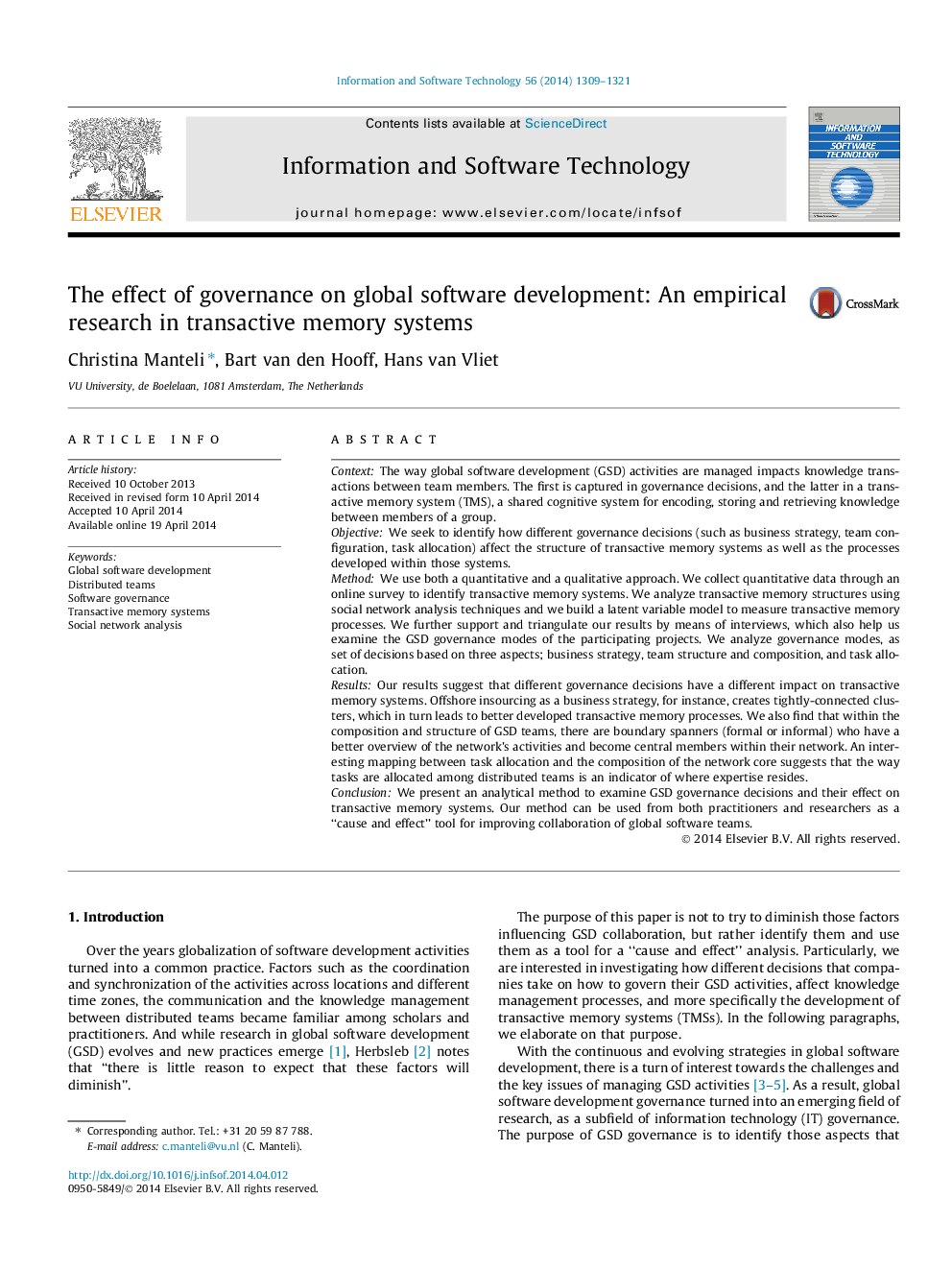| کد مقاله | کد نشریه | سال انتشار | مقاله انگلیسی | نسخه تمام متن |
|---|---|---|---|---|
| 550202 | 872565 | 2014 | 13 صفحه PDF | دانلود رایگان |
ContextThe way global software development (GSD) activities are managed impacts knowledge transactions between team members. The first is captured in governance decisions, and the latter in a transactive memory system (TMS), a shared cognitive system for encoding, storing and retrieving knowledge between members of a group.ObjectiveWe seek to identify how different governance decisions (such as business strategy, team configuration, task allocation) affect the structure of transactive memory systems as well as the processes developed within those systems.MethodWe use both a quantitative and a qualitative approach. We collect quantitative data through an online survey to identify transactive memory systems. We analyze transactive memory structures using social network analysis techniques and we build a latent variable model to measure transactive memory processes. We further support and triangulate our results by means of interviews, which also help us examine the GSD governance modes of the participating projects. We analyze governance modes, as set of decisions based on three aspects; business strategy, team structure and composition, and task allocation.ResultsOur results suggest that different governance decisions have a different impact on transactive memory systems. Offshore insourcing as a business strategy, for instance, creates tightly-connected clusters, which in turn leads to better developed transactive memory processes. We also find that within the composition and structure of GSD teams, there are boundary spanners (formal or informal) who have a better overview of the network’s activities and become central members within their network. An interesting mapping between task allocation and the composition of the network core suggests that the way tasks are allocated among distributed teams is an indicator of where expertise resides.ConclusionWe present an analytical method to examine GSD governance decisions and their effect on transactive memory systems. Our method can be used from both practitioners and researchers as a “cause and effect” tool for improving collaboration of global software teams.
Journal: Information and Software Technology - Volume 56, Issue 10, October 2014, Pages 1309–1321
